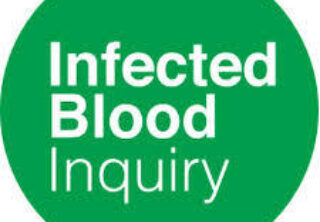Nottingham and Nottinghamshire Integrated Care System Supporting Collaborative Commissioning. A Learning Laboratory Approach
Sarah Fleming Programme Director for System Development – NHS Nottingham and Nottinghamshire said, "IPC's professionalism, independence and expert knowledge has been invaluable to us in our collaborative commissioning development."
-
Situation and Task
-
What was the impact?
-
Key Success Factors
-
Situation and Task
-
Situation and Task
In 2021, prior to the formal establishment across England of Integrated Care Systems (July 2022), IPC supported the Clinical Commissioning Group, Nottinghamshire County Council and Nottingham City Council. The purpose was to define the vision, principles, values and a framework for a single, strategic approach to commissioning integrated services for the population of Nottingham and Nottinghamshire.
As part of this work, IPC facilitated a collective session and workshops for the individual organisations, to review their strengths and areas for development for effective joint and integrated commissioning. Emerging from this review was an agreement to support colleagues to engage in more collaborative activities for the effective commissioning of support and services, both at ‘place’ and ‘system’ levels.
In June 2022, the new ICS began its programme of Learning Laboratories, facilitated by IPC to ‘test’ the principles developed for their Collaborative Planning and Commissioning Framework. Central to the programme was to explore ways of working within the new system architecture, and the factors important to the ICS e.g., clarity of scope, outcomes to be achieved at system and place and how the work sits within Integrated Care Partnership (ICP)/Integrated Care Board (ICB) priorities.
Specifically, the purpose of the Learning Labs was to:
- Apply a systematic approach to collaborative planning and commissioning across a number of transformation priority areas
- Identify conditions for, and barriers to, success in plans for greater integration of services
- Develop the approach to delivery through place based partnerships
- Empower teams to work innovatively to deliver shared solutions
- Consider the system maturity against the principles of collaborative planning and commissioning
During the period June 2022 and March 2023, IPC facilitated learning labs for the following areas:
- Youth Hubs
- Severe Multiple Disadvantage
- Personalised Care
- Bone Health
- End of Life
- 0 – 5 Best Start
- Adult Mental Health
-
What was the impact?
-
What was the impact?
Following are some of the key outtakes from the sessions:
- ‘This has brought key strategic leads together to develop one system direction for Best Start. I have already worked with all the colleagues in the room individually, but this has brought us all together to openly discuss our vision and challenges. Time to come together as one, has been key to achieving this.’
- ‘Don't just jump into a piece of work. Take the time to build relationships, ensure you are all on the same page, equally committed (including money), and the approach you choose will deliver everyone's objectives. Getting the building blocks in place is what will make the work successful.’
-
Key Success Factors
-
Key Success Factors
Sarah Fleming Programme Director for System Development – NHS Nottingham and Nottinghamshire said:
“IPC provided impartial expertise which supported system partners to reflect on where we work well together and those areas where we need to focus further efforts. They provided examples of how we could make improvements, acting as a supportive critical friend, as well as challenging us to continue with our progress. This led to us developing a Collaborative Planning and Commissioning Framework which sets out how partners will work together to plan services for our population.
In order to test out the principles in our Framework, IPC worked with ICS partners to collaborate on a range of challenging issues. They effectively brought partners together with a focus on designing solutions to improve population outcomes. Their professionalism, independence and expert knowledge has been invaluable to us in our collaborative commissioning development."
Successes and reflections:
Ultimately, the purpose was to support both individual service areas and the overall ‘systems’ to improve the approach to collaboration. Both colleagues in Nottingham and IPC, despite operational and short-term pressures challenging the capacity to attend the Labs, believed it was worth the effort and energy to understand and improve endeavours to collaborate.IPC’s view was that the effort colleagues in Nottingham undertook in 2021 to create their ‘collaboration narrative’ through the development of their new commissioning framework, was a crucial step in creating a vision of what this would mean across the partnership.
Finally, we also believe that drawing people together with a specific focus, had a positive impact on understanding the value of how a collaborative approach to commissioning can impact effective service design and the delivery of person-centred, outcome focused services.
Related News

Admission Avoidance and Community Support
07/06/2024
IPC Visiting Research Fellow Dr Melanie Henwood offers some reflections on hospital admission avoidance and the importance of supporting people in place
Related Services

Consultancy
Our consultancy services are tailored to address the unique challenges faced by our clients. From problem-solving and enhancing current practices to fostering innovation, we offer expert guidance.






